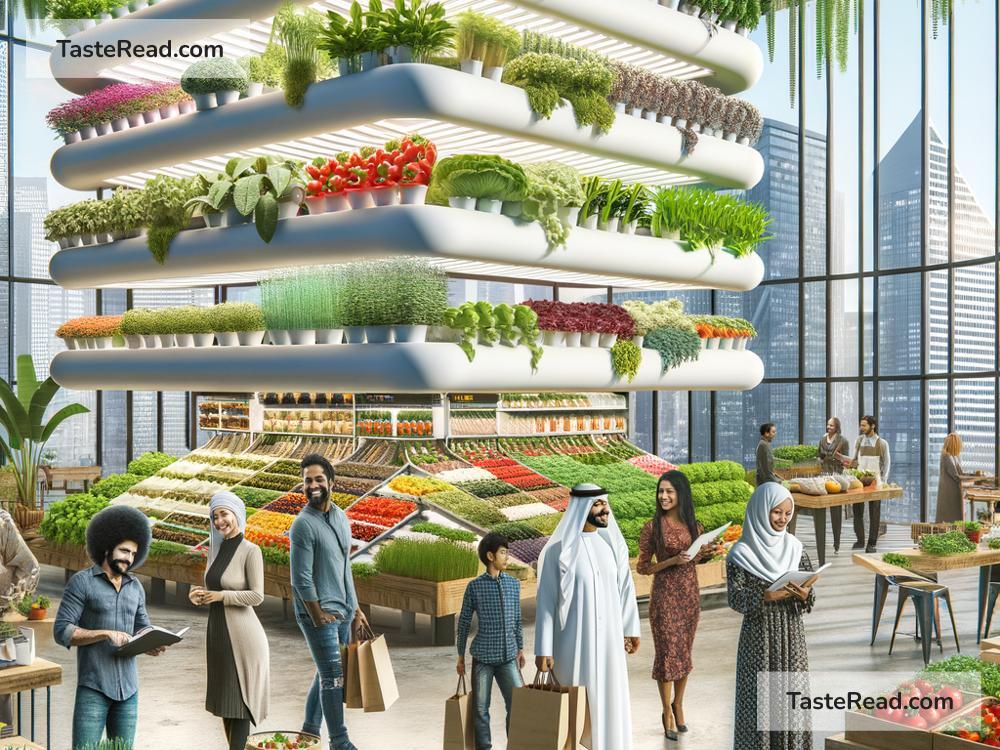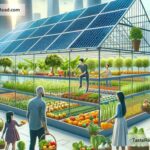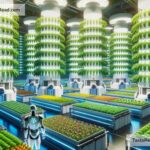The Future of Food and Social Responsibility: Building a Healthier Planet
Food is a big part of our lives. It brings us together, keeps us healthy, and fuels us for the day ahead. But the way we produce, eat, and share food today may not be sustainable in the long term. As the global population grows and environmental challenges like climate change worsen, the future of food is becoming one of the most important topics in the world. Alongside this, social responsibility—the idea of caring for people, communities, and the planet—is becoming central to how we think about food. In this blog post, we’ll explore what the future of food could look like and how social responsibility plays a crucial role in shaping it.
Why the Food System Needs Change
Our current food system has a lot of problems. Many farming practices harm the environment by using large amounts of water, chemicals, and land, while also producing greenhouse gases that contribute to global warming. At the same time, millions of people around the world go hungry every day because they lack access to food, while others waste enormous amounts of edible food. This inequality and harm to nature tell us that something needs to change.
The future of food needs to address these problems and focus on creating a system that is sustainable, fair, and efficient. People, businesses, and governments have the power to rethink the way food is produced, distributed, and consumed—and the decisions we make today will shape how food looks in the years to come.
Technological Innovation in Food
One of the biggest trends in the future of food is technology. New innovations are giving us ways to produce food more efficiently while using fewer natural resources. For example, advancements like vertical farming allow crops to grow in stacked layers inside buildings, saving space and water. These farms can use artificial lighting and controlled environments to produce fresh, healthy food in cities or areas with harsh weather conditions. This could help reduce the pressure on traditional agriculture and make food more accessible to urban populations.
Another exciting development is cultured—or lab-grown—meat. Scientists have discovered ways to grow meat in labs using animal cells. This process uses much less land and water and produces fewer greenhouse gases than raising livestock. It also avoids harming animals. While lab-grown meat is still being refined and remains expensive for many, it could become a sustainable source of protein in the future.
Plant-based alternatives to traditional meat, such as burgers made from soy, peas, or mushrooms, are also gaining popularity. These options can reduce our reliance on animal agriculture, which is a major contributor to climate change.
Personalized Nutrition
In the future, food might also become more personalized. Thanks to advances in technology and health science, it may be possible to tailor diets to meet individual needs. For example, machines could analyze your DNA and health data to suggest foods that are best for you. If you’re prone to certain illnesses, your diet could focus on nutrients that help prevent them. This approach to eating aims to improve health outcomes for people everywhere.
Social Responsibility and Food Equity
While technology can help solve many problems, it’s only one part of the puzzle. We also need to address social responsibility, which means making thoughtful, ethical choices about food that benefit everyone—not just a few. Social responsibility ensures that food systems are fair to farmers, workers, and consumers while protecting the environment.
One important part of this is food equity. Food equity means that everyone has access to enough nutritious food, no matter where they live or how much money they have. Right now, food is not distributed equally across the planet. Wealthy nations often have an abundance of food, while poorer countries struggle with hunger and malnutrition. The future of food must include efforts to close this gap and provide food for all.
Farmers and food workers also need fair treatment. Many farmers face challenges like low pay, harsh working conditions, or exploitation from large corporations. Choosing to buy food from companies and organizations that support fair-trade practices can help make a positive impact.
Reducing Food Waste
Another key part of social responsibility is reducing food waste. Globally, around one-third of all food produced is wasted. This is shocking, especially when so many people go hungry. Wasting food also harms the environment, as energy, water, and land are wasted in its production. Individuals, businesses, and governments need to work together to reduce waste through better storage, thoughtful consumption, and recycling programs.
Local and Sustainable Food Choices
Consumers have the power to push for a better food system. Choosing to eat local and sustainable foods supports farmers in your area and reduces carbon emissions caused by transporting food over long distances. Plant-based diets—or even eating less meat—can also significantly lower environmental impacts. Every small change helps, and when many people make mindful choices, we can create big improvements.
What Can We Do?
Creating a better food future requires everyone’s participation. As consumers, we can make choices that support sustainability and social responsibility. Doing simple things, like reducing our food waste, buying from ethical sources, or eating more plant-based meals, can make a serious difference.
Governments and businesses have their role, too. Policies and practices that promote fair treatment for farmers, protect the environment, and invest in food technology can accelerate progress. It will take global cooperation to build food systems that work for everyone.
Conclusion
The future of food isn’t just about what’s on our plate; it’s about the way food interacts with the world around us. By embracing innovation, making ethical choices, and committing to sustainability, we can create a future where food is plentiful, healthy, and fair for all. Social responsibility must be at the heart of these efforts, ensuring that no one is left behind. Together, we can build a food system that nourishes both people and the planet.


